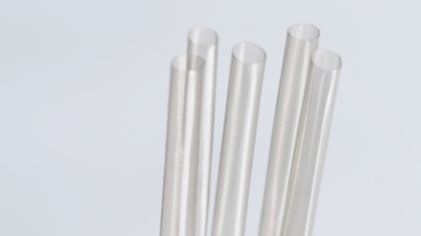Interventional Oncology: A Precision Medicine Revolution
Interventional oncology is a minimally invasive medical approach that leverages imaging guidance to treat tumors. As medical technologies advance, interventional oncology is rapidly gaining ground as an essential treatment modality alongside traditional surgery, chemotherapy, and radiation. Unlike conventional therapies, interventional procedures offer smaller incisions, faster recovery, and fewer complications, making them ideal for patients who cannot undergo standard surgery. In this post, we explore the applications, technological advancements, and future trends shaping this exciting field.
What is Interventional Oncology?
Interventional oncology uses imaging techniques like CT, ultrasound, and MRI to guide precise, minimally invasive treatments directly to tumors. Common methods include:
Radiofrequency Ablation (RFA): This technique uses high-frequency electrical currents to generate heat and destroy tumor tissue. It is particularly effective for liver, kidney, and lung cancers.
Transarterial Chemoembolization (TACE): TACE delivers chemotherapy drugs and embolic agents directly to a tumor’s blood supply. By cutting off blood flow, it enhances the drug’s concentration and impact, commonly used for liver cancer.
Cryoablation: This technique freezes and destroys tumor cells using extreme cold. It’s ideal for small, well-defined tumors or those in difficult surgical locations.
Percutaneous Needle Biopsy and Pain Management: These procedures, guided by imaging, help diagnose tumors and manage pain, especially in advanced cancer cases.
These minimally invasive techniques provide shorter recovery times, less pain, and fewer complications, enabling patients to resume normal activities faster.
2. Clinical Applications of Interventional Oncology
Interventional oncology is highly versatile, with applications across many types of cancer. Key examples include:
Liver Cancer: Techniques like TACE and RFA are gold standards for hepatocellular carcinoma (HCC). They effectively control tumor growth and extend survival, especially for patients ineligible for surgery.
Lung Cancer: Image-guided methods such as percutaneous ablation and transarterial embolization (TAE) are increasingly used to treat early-stage or inoperable lung tumors, offering less invasive alternatives to surgery.
Kidney Cancer: For small renal tumors, ablation methods like RFA and cryoablation help preserve kidney function while managing tumor growth.
Bone Metastasis: Interventional techniques like thermal ablation, vertebroplasty, and kyphoplasty provide pain relief and improve mobility for patients suffering from bone metastases.
3. Technological Advancements Driving Interventional Oncology
Advancements in imaging and treatment technologies are propelling interventional oncology forward. Notable innovations include:
Real-time Imaging: Using real-time MRI and CT-guided procedures improves precision and reduces the risk of damaging healthy tissues, ensuring safer and more effective treatments.
Minimally Invasive Tools: New instruments are smaller and more efficient, enabling quicker, less painful procedures with minimal discomfort for patients.
Combination Therapies: Combining interventional oncology with chemotherapy, radiation, or immunotherapy allows for personalized, comprehensive cancer treatment plans.
Robotic-Assisted Interventions: Robotic systems are enhancing precision and control, especially for hard-to-reach tumors, making procedures safer and more effective.
Interventional oncology is transforming cancer treatment, offering targeted, minimally invasive options that improve patient comfort and recovery times. As technological innovations and combination therapies continue to advance, the field is poised to play an even more significant role in cancer care. For many patients, it provides hope for longer survival and a better quality of life.
Eco Polymer: Where Innovation Meets Excellence in Medical Device Manufacturing.


Contact us
As a leading Contract Manufacturing Organization (CMO), we excel in custom medical catheters and membranes, from prototyping to mass production. Our focus: unparalleled R&D innovation and rigorous quality validation.





